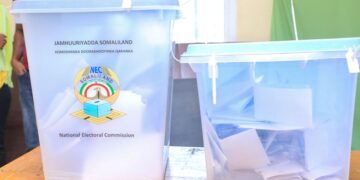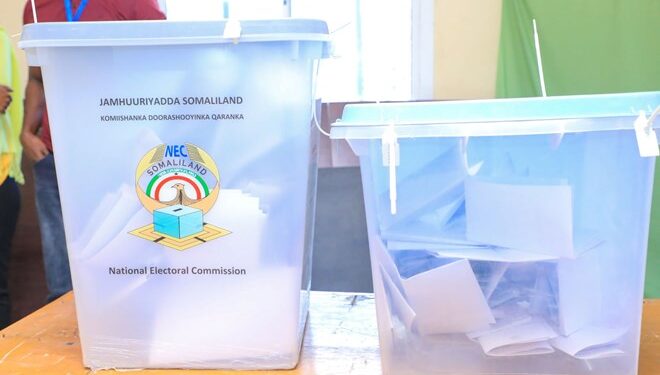By Enyichukwu Enemanna
No fewer than one million registered and eligible voters will on Wednesday participate in an election in the breakaway Somaliland to elect a new president who will lead the territory for the next five years.
Considered as a Somalia region, Somaliland has struggled for 33 years to gain international recognition as an independent nation.
Three candidates, including incumbent President Muse Bihi Abdi, seek to consolidate the region’s fragile democracy, boost economic growth and gain global acceptance.
Abdi, of the ruling Peace, Unity and Development Party, also known simply as Kulmiye is seeking a second term in Wednesday’s election.
He is running against Abdirahman Mohamed Abdullahi, known as “Irro,” of the Waddani party and Faisal Ali Warabe of the Justice and Development Party.
VOA quoted each of the candidates as promising to strengthen democracy, boost economic growth and seek international recognition for the breakaway region.
Abdi, 76, who was elected head of the region in 2017, has pledged there will be progress on a controversial maritime deal that Ethiopia signed with Somaliland earlier this year.
This is the fourth presidential election since the region on the northwestern tip of Somalia broke away from the rest of the country, following the collapse of the Siad Barre regime in 1991.
The territory declared independence that year but has never achieved international recognition.
Despite this, Somaliland has a functioning government and institutions, a political system that has allowed democratic transfers of power between rival parties, its own currency, passport and armed forces.
Somaliland’s last presidential election held in 2017. The current presidential election was originally set to take place in 2022 but was postponed until 2023 and then again pushed back to November 2024, following a controversial extension of Abdi’s mandate by the parliament’s upper house.
The Somaliland National Election Commission, said at the time that the delays were due to “time, technical and financial constraints.” Opposition parties vehemently denounced the delays.


































